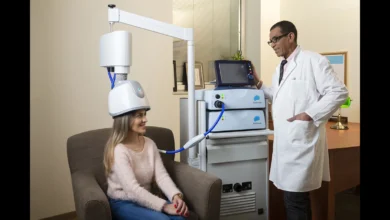Parasited Motel Malaise: Understanding the Unseen Dangers

Introduction: The Mystery of Parasited Motel Malaise
Traveling is one of life’s greatest pleasures. From weekend getaways to exotic vacations, motels often provide convenient and affordable lodging options for those on the go. However, beneath the surface of a seemingly welcoming motel, there may lie a hidden danger that travelers often overlook: the parasited motel malaise. This term, while not commonly known, refers to the unfortunate conditions that arise from staying in motels plagued by pests, parasites, and poor maintenance. These issues can range from physical health risks to mental and emotional distress.
Parasites in motels might not be as visible as some would expect, but they can wreak havoc on your well-being and make your stay anything but pleasant. Understanding this phenomenon is crucial for any frequent traveler. In this article, we will dive deep into the factors that contribute to parasited motel malaise, the health risks involved, and most importantly, how to avoid it altogether.
The Root Causes of Parasited Motel Malaise
1. The Spread of Pests and Parasites in Motels
In the world of motels, cleanliness and pest control are often overlooked in favor of cost-efficiency. This is one of the primary reasons for the prevalence of parasited motel malaise. A motel may have an air of comfort upon arrival, but once you settle in, you may start to notice signs of pests and parasites lurking in the shadows. Bedbugs, fleas, cockroaches, and even rodents are commonly found in motels, especially those that don’t prioritize regular maintenance and deep cleaning.
Pests like bedbugs are particularly notorious. These tiny creatures feed on human blood and are often carried from one location to another via luggage or clothing. The infestation may begin innocently enough, with a few bites, but if left unchecked, it can lead to a full-blown infestation that makes sleeping or relaxing nearly impossible. Fleas are another common problem, especially in older motels or those located in more rural areas. These tiny creatures can spread quickly, causing itchy bites and possible allergic reactions.
The primary reason these pests thrive in motels is the lack of proper sanitation. Many motels, especially those that are older or budget-friendly, don’t have regular pest control treatments. Even if the motel does have a pest control plan in place, it may not be as thorough or effective as it should be.
2. Neglecting Regular Maintenance and Cleaning
Another significant factor that contributes to parasited motel malaise is the neglect of routine maintenance and cleaning. Over time, the wear and tear of everyday use can create small cracks and crevices where pests can easily hide and breed. In many cases, motel management may not prioritize the upkeep of their rooms due to financial constraints, leading to larger problems that affect guests’ comfort and health.
This neglect can manifest in various ways, including mold growth in damp corners, peeling wallpaper, and stained carpets. These issues, though not directly linked to parasites, create an environment that attracts pests, providing them with food, water, and shelter. Furthermore, the unhygienic conditions associated with these issues often cause guests to feel uneasy, leading to stress and discomfort. When guests are unaware of the cleanliness (or lack thereof) in the room, they can be vulnerable to both physical and psychological distress.
Routine cleaning of motels is an absolute must to prevent parasited motel malaise. Guests may not always be able to see these problems, but they can certainly feel them. Whether it’s an overwhelming musty smell in the air or itching after a night’s sleep, these signs often point to a deeper issue that could have been avoided with proper care.
3. Environmental Factors and External Influences
Another aspect that contributes to parasited motel malaise is the motel’s location. If a motel is situated near areas with high levels of humidity or dense vegetation, it may be more susceptible to an infestation of insects and parasites. Areas prone to natural disasters like floods or hurricanes can also exacerbate these conditions. In the aftermath of such events, motels may suffer from water damage and structural instability, creating ideal conditions for the spread of mold, mildew, and pests.
In such cases, motels may also become more difficult to maintain. With fewer resources available for repairs and pest control, these motels are often forced to cut corners. This results in an environment that is not only uncomfortable but potentially dangerous for guests. Traveling to such areas can, unfortunately, increase the likelihood of experiencing parasited motel malaise.
The Health Risks of Staying in a Parasited Motel
1. Physical Health Effects of Parasites
The health risks associated with parasited motel malaise go beyond mere inconvenience. In fact, some of the pests and parasites found in motels can cause serious physical health problems. Bedbugs, for instance, are not just a nuisance—they can lead to skin infections from scratching their bites. In some cases, an allergic reaction may occur, leading to swelling, redness, and in extreme cases, difficulty breathing.
Fleas, another common pest in motels, can transmit a variety of diseases. The most notable of these is the plague, which historically has caused widespread devastation. While rare, the potential for disease transmission is real. Even without such extreme outcomes, flea bites can lead to intense itching and irritation, often requiring medical attention.
Additionally, the presence of cockroaches in motels is known to trigger asthma and allergic reactions. Their droppings and body parts contain allergens that can cause respiratory issues, particularly in individuals with compromised immune systems. If left unchecked, these allergens can cause significant health problems, especially for young children, the elderly, or those with pre-existing conditions like asthma.
2. Mental and Emotional Toll on Guests
Parasited motel malaise isn’t just about the physical discomfort caused by pests; it also takes a significant toll on a traveler’s mental and emotional well-being. The mere thought of sharing a room with insects or rodents can induce stress and anxiety. Imagine lying in bed, unsure of whether something is crawling on you, or waking up to find bites on your skin. For many people, this can be a traumatic experience.
The psychological effects of staying in a motel plagued by pests can range from mild unease to full-blown panic attacks. The fear of contamination, combined with the inability to relax in the environment, can make the motel experience feel less like a vacation and more like an ordeal. Even after leaving, travelers may continue to feel the effects of parasited motel malaise, harboring a fear of returning to such an environment.
For those who are already predisposed to anxiety or phobias, the experience can be far more severe. In extreme cases, such experiences could even lead to long-term sleep disturbances, a sense of distrust toward accommodations in general, and a reluctance to travel.
3. Increased Risk of Spreading Infections
In motels with poor sanitation and pest control, there is always the risk of spreading infections. While not all pests carry diseases, many of them can be vectors for bacteria, fungi, and viruses. For example, cockroaches and rats can carry pathogens that spread through their droppings and saliva, leading to gastrointestinal issues like diarrhea, food poisoning, and other bacterial infections.
Furthermore, motels often serve as a gathering place for many different travelers, meaning that the potential for cross-contamination increases. One guest may unknowingly introduce a pest or parasite into the environment, which can then spread to others. This creates a vicious cycle of infestation and illness that is difficult to break without proper intervention.
In some cases, it may be necessary for motels to close temporarily in order to conduct a full-scale cleanup and pest elimination, which can be disruptive for guests who are already affected by the environment.
How to Avoid Parasited Motel Malaise
1. Choosing the Right Motel: What to Look For
To avoid experiencing parasited motel malaise, it’s essential to choose the right motel. Begin by doing thorough research before making a reservation. Look up reviews online to see if previous guests have complained about cleanliness or pest issues. Websites like TripAdvisor, Yelp, or even Google reviews can provide invaluable insights into the experiences of others.
Additionally, you should check the motel’s website to see if they mention pest control measures or any recent renovations. A reputable motel will be transparent about its efforts to maintain a clean and safe environment. Some motels even have certifications from pest control organizations, which indicates their commitment to maintaining high standards.
When you arrive, inspect the room for any signs of pests. Look for bedbugs around the seams of the mattress or in the cracks of furniture. Check the corners of the room for dust and debris, as this can indicate poor cleaning practices. Trust your instincts—if the room feels unclean, ask to switch rooms or leave altogether.
2. Taking Precautions During Your Stay
Even if you choose a well-maintained motel, it’s always a good idea to take precautions during your stay. Keep your luggage elevated off the floor, preferably in the bathroom or on a luggage rack. This reduces the risk of bringing any pests back home with you. If you notice any bites or itching, take immediate action by requesting a room change and documenting the issue for future reference.
Additionally, use insect repellent or sprays on your clothing to protect yourself from any potential pests. If you’re traveling to areas known for higher pest activity, consider packing a portable bedbug mattress cover to provide extra protection while sleeping.





